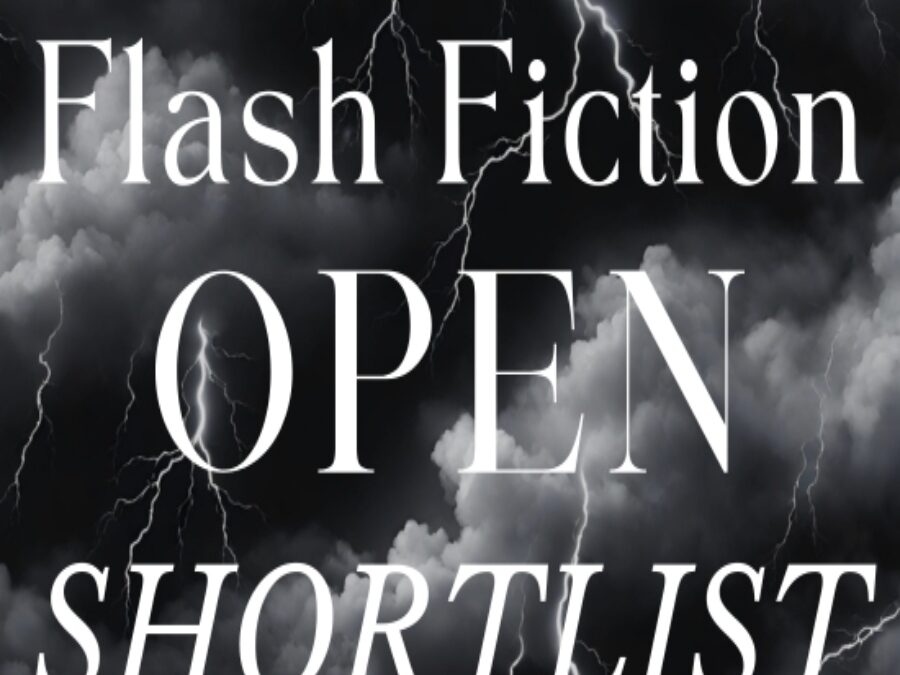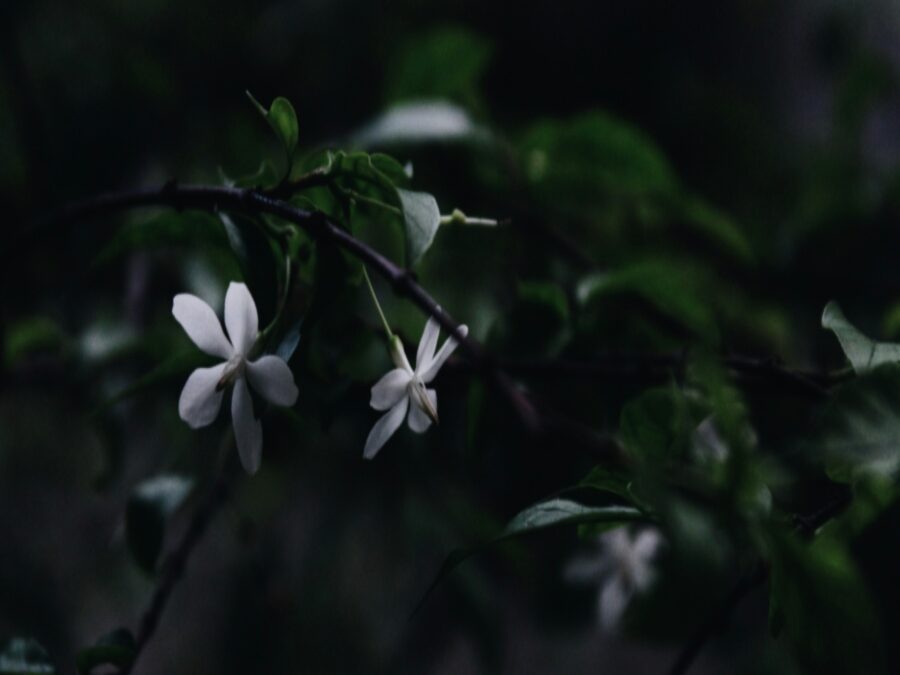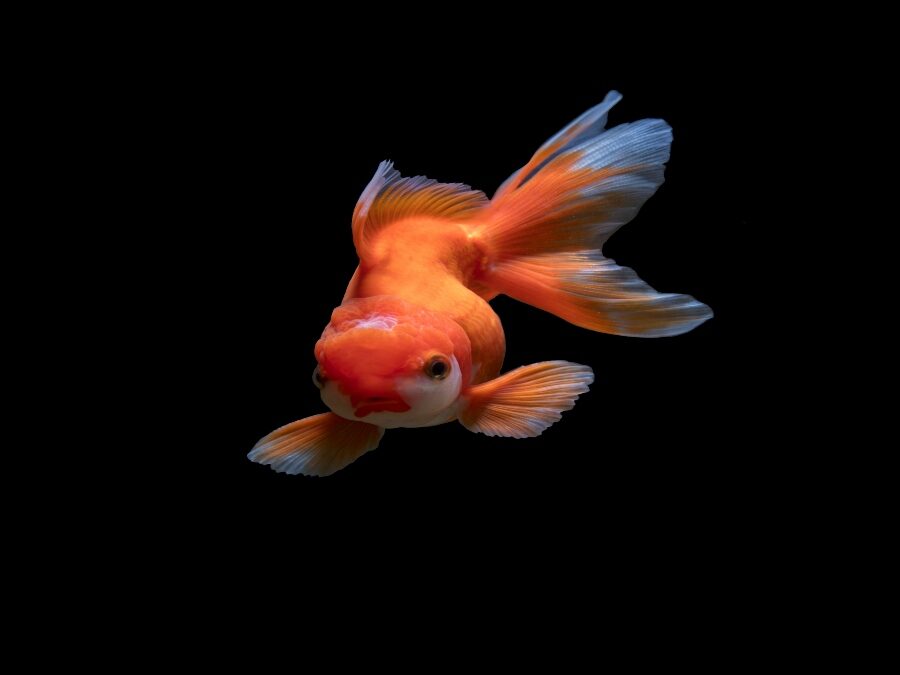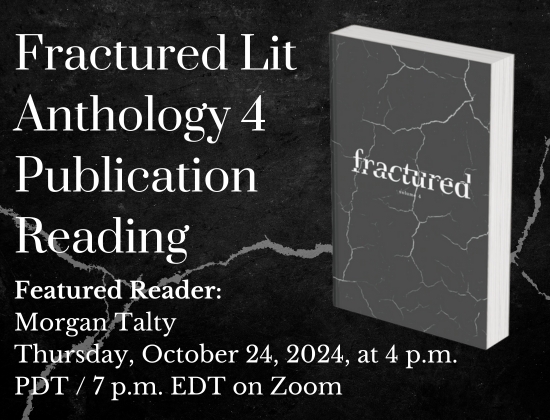
by Marty Keller | Oct 18, 2024 | micro
The vibration of the harvest gold phone that hung from our kitchen wall the last Sunday you called. Mom’s fingernails digging into my palm as she yanked the receiver and slammed it in the cradle. The deep divots imprinted on the back of my thighs from the plastic seat covers of our old Buick. That wilted ten-dollar bill you slipped me, damp with sweat and stained with black grease. The pull of the passenger door when it locked.
Picking up crushed cans of Schlitz scattered like wildflowers around the fraying lawn chair. The weight of your body sprawled in daylight. Scratching mosquito bites on my knees until they bled and scabbed. Hammering a nail above the hole in the plaster wall. Centering the good picture of us over the hole—Your hand on mom’s shoulder; her hands holding me. Sweeping broken glass off the floor. The red ribbon for writing. The blue ribbon for running.
Pressing my arms against the metal railing on the second floor of Howard Johnson’s. Waving at you in the parking lot with my right hand as my thin skin burned to pink. The feel of my fingers laced with yours when you told us things would be different. Pinching my nose and holding my breath underwater. You jumped in and grabbed me. We broke the surface of the water together. My fingers hung from your neck when our mouths opened like choir singers, a duet of gasping.
Bubble gum. Bubble gum. In a dish. How many pieces do you wish? Ripping the sticky paper off a waffle cone dripping with vanilla ice cream. The shape of a perfect snowball. The width of your hands twirling me in a cotton sundress the color of daffodils. Out came the sun and dried up all the rain. Banging my fork on the table at IHOP between mouthfuls of pancakes. The syrup creeping past my thumb to my elbow. My tongue licking the sweet from my knuckles. But itsy-bitsy spider went up the spout again. How your eyelids felt like warm tissue paper when I rested my fingers in their sockets, my small legs dangling over your broad shoulders. We’re towering high above the other bodies in the crowd, a wobbly circus act: Your arms are outstretched, fingers clawing the air, feeling your way back home with each stumble. I am your eyes, whispering which way to turn.

by Meg Pokrass | Oct 14, 2024 | flash fiction
Handcuffs
On the way to see our boy in the detention centre I was wearing invisible handcuffs. “Don’t try to make them like you this time,” my husband said. He was talking about the guards. The bus lurched and my lunch wanted to become free of its cage. A sense of humor was what I once loved about him, but now, any time I made a joke, it shocked him. The bus was our chapel. We grew silent because we didn’t want anyone else to hear us. There were other parents on the bus. Every time we wound up that road, we were on the way to see our son, who used to love staring at horses in the fields.
Horse
When our son was younger, he wanted to be a horse. “I don’t want to be the kind that lives behind a wire fence,” he said. “I want to be the kind that knows where it belongs.” We didn’t know things then, and our hearts were broken every day we couldn’t afford what we wanted for him. It was the year my husband and I lost our jobs, and the neighbor’s car backed over my foot, and our son said he didn’t want to ride to school anymore without a horse. Every day, he wore a uniform, the same sweatshirt and hood. When teachers demanded to see his face, they said, that hood comes off, or you don’t come back tomorrow.
Uniform
My uniform was a pair of jeans and a David Bowie t-shirt my old best friend gave me before she stopped calling because I didn’t pick up the phone even though it would have done me some good. There was a secret chapel I handcuffed myself to at night, and I talked to the bones of my foot, and I asked the foot to please behave like a limb again. “It’s not like you’re always going to be broken in two,” I said, and then laughed at myself because what kind of mother talked to her foot in the dark?
Wire Fence
After they caged our son, my husband erected a real wire fence around the front yard as a way to ward off more unseen problems. “That’s a bit extreme,” I said, but now he seemed to believe in doing whatever it took to make things right. He bought a pair of handcuffs from a sex catalogue, and we tried them out one night, hoping to bring sex back into our lives and knowing that we couldn’t be overheard. “All I’m asking tonight is that you stop acting heartbroken,” he said. I tried to feel slippery and young for him but it wasn’t happening. Finally, he unlocked me, and we lay in bed naked, staring at the ceiling. “Let’s just stop worrying,” I said. “Us, worry?” he said because sometimes he had the old sense of humor back.
Chapel
They had our son in the detention centre because he broke into a riding equipment store, stolen a number of saddles and bridles, left his fingerprints everywhere, and when the police came out, he blew air out of his lips like an angry horse. On the bus, my husband and I talked about how this was a temporary condition that all of us had fallen into. “Like a curse after the car ran over my foot,” I said, and meant it. There was the small chapel at the detention center, but none of the parents were ever in it. We were trying to remember the type of horse our son liked best. “The type with the freckles on its back, I think,” I said. We couldn’t remember the breed of this horse. The roads were wet, and the bus driver was trying to break the ice. “Slippery day, folks,” he said.
Heart Broken
In the chapel, we sat there feeling heartbroken, and then suddenly, we both started to laugh. About time, I thought, but didn’t say. It was a tiny, damp outbuilding, with only six pews. “I doubt God is hanging around here much,” my husband giggled with wetness in the corners of his eyes. I imagined presenting our son with a spotted horse. How he would smile at me like the child he once was. He would ride into the future, and we would wave as if to say, we’ll miss you, but we know you’ll do great and come back happy.
Slippery
The day he was released, we went home on the bus, my son’s suitcase next to us on its side. He was quiet as we rode past the farms, and he didn’t look out the window. “There are your horses,” I wanted to say as he stared at my extra-large shoe. I stared at his eyes as if they were caught there. “The walking is going a bit better,” I lied because I still used a cane. He no longer had on a hood and his bare head looked too tender without it. I said, “We have a surprise for you waiting at home.” This was true. We’d rescued a dog found in the field near our house. We thought it might help all of us, even if the road remained potholed. My son kissed me on the forehead as if I were his freckled horse, as if, for the first time, he felt he could talk to me about the accident. “Mom, I prayed for you in that stupid chapel,” he said, as if we had always been handcuffed to each other, but it felt good.

by Fractured Lit | Oct 10, 2024 | news
We’re excited to honor these stories by including them on our shortlist for this contest. Congrats to the writers who have made it this far in the contest! Your piece has been handed over to our Guest Judge, Maurice Carlos Ruffin!
- Dead Things I Gave Birth To
- A Short Love Story
- Humoresque
- The Anti-Anti Natalists
- Envelopes
- Call Me Daddy
- My brother dead in the Heaven Department
- Snow
- No Promises
- Thursday
- In the Path of Totality
- Reel
- White Trash
- The Hunt
- Maybe It Comes Like This
- The Indigo Dyer
- One Minute Thirty-Five Seconds
- The Uranium Bird
- Brittle Stars
- The Touch Forecast
- Good Neighbors
- Heartbeat
- Sugar Highs & Lows
- Sixty, Fifty-Nine, Fifty-Eight
- Pulse
- Gizzard
- Blood-Related
- Lines Left
- Bramble
- My Woman
- Adrift

by Ani King | Oct 10, 2024 | micro
Thinking about how she flung a softball right into my dad’s eye. How with her he was like helluva pitch, girl. How he said she could split the light with her fastball. How he said man, it’s too bad you can’t play real baseball with an arm like that, too bad softball is a man’s game. How she always hated that. How she would still just give him a very cool pitcher’s nod, snapping the brim of her U of M cap down, snapping a ball into one bare hand then the other, because yeah, she could put a light out with that arm. How it was our last time in my dad’s basement, how Wayne’s World was playing, sound on high, how her glove-hand pressed over my mouth, how it smelled of Doritos, leather, sweat, spit, how when he caught us, he grabbed her shoulder hard and said we were playing a man’s game. How she let that ball fly. How she pitches beer league now, a little drunk; how her fingers spread wide over stitched red seams, how she still has a hell of an arm, how later she will press her glove-hand over my mouth and pitch me into the light.

by Susan Perabo | Oct 7, 2024 | contest winner, flash fiction
Content Warning: Miscarriage, abortion
Following the meeting with the doctor, there was no thought of a baby shower. Too much rage. Too much grief. The two were indistinguishable, separate ropes twisted into a single noose. Bullshit about stages of grief, the mother thought; it was everything all at once. Including this: she was nonstop clammy from morning sickness. Before the diagnosis, she sometimes dry heaved pre-dawn in the downstairs half-bath so as not to wake anyone. After the diagnosis, she didn’t care; she just bowed over the side of the bed and dry-heaved into the wicker wastebasket. After the second time, the father lined the wastebasket with a garden-scented bag.
They sought a second opinion, then a third. “It’s extremely rare,” the third doctor had said of the mother’s condition. Seated behind an antique desk, the doctor removed her glasses. “This…” she began. “This is… kind of our nightmare scenario.”
“There has to be something we can do,” the father said. Oh, he had some ideas. Once, in a movie he loved, a vicious man had punched his wife in the stomach, and that had been the end of that. Could he punch his wife in the stomach? The father tried to picture it but couldn’t even get past the act of making a fist.
In the fourth month the morning sickness subsided, but the mother was weak, dazed. Her stools were laced with blood. She couldn’t sit without pain, so she spent much of the day in bed or stretched out on her side on the living room couch. She tried to spoon her daughter, but Allie wasn’t having it, slithering out from under her arm as soon as the mother’s embrace loosened even a fraction.
Her parents rented an Airbnb a half-mile away. When she asked how long they’d reserved it for, they wouldn’t say. They stayed at the house during the day while the father was at work. The grandfather flipped through the cable channels but kept the TV on mute. The grandmother played Candy Land with Allie while the mother watched from the couch across the room.
In the fifth month, she woke one morning, rolled over with effort, and said to the father, “Let’s do it.”
“Do what?” he asked. He’d been awake for hours. Most nights, he only slept from 3 to 5 am, when his body shut down and buried him in a dreamless, thick ink. In the moments before the ink, all he could think of was how he would possibly survive afterward: a single father with a three-year-old and a baby, or a three-year-old and a disabled baby, or a three-year-old and a dead baby.
“Let’s have a shower,” she said.
For a moment, he thought she was suggesting they have sex, and he felt such a shocking juxtaposition of desire and terror that he only gaped at her.
“We should get everyone together,” she said. “It would be good for my mom. My sisters. And Allie.”
“What about you?”
She scoffed. “What about me?” she asked.
The father and the grandmother had been at odds for weeks, which they both recognized had nothing to do with either of them, yet they kept finding things to argue about. Now, in the kitchen, they argued about the shower. About flowers – the father wanted them, the grandmother did not. About presents – the grandmother wanted them, the father did not.
“What kind of presents are people supposed to bring?” he asked. “Seriously.”
“She wants it to be normal.”
“Then why not have flowers?”
“Flowers are for funerals,” the grandmother said flatly.
None of this mattered because just then the mother shuffled into the kitchen and announced that not only were there going to be flowers and presents, goddammit, but there would also be blue and white streamers, and It’s a Boy balloons, frilly napkins, champagne punch, and vanilla cupcakes decorated with cute teddy bears.
“Sweetheart,” the grandmother said.
“I want it to be NORMAL,” the mother shouted. (The mother never shouted. She didn’t even recognize her own voice.) “You can’t pick and choose. It’s all or nothing. It’s normal, or it’s not. And it’s going to be normal.”
There was nothing they could say. At this point, they’d be cruel to try to talk her out of anything. Instead, they looked past her and at each other with seething resentment. They both so desperately wanted someone to blame.
Allie and the girl cousins wore matching purple dresses. Purple was the mother’s favorite color. She had invited almost everyone she knew: old roommates, former colleagues, and neighbors she rarely spoke to. No one wanted to go, but how could anyone refuse? The champagne punch was gone in an hour. The aunts stood in the kitchen with a bottle of peach schnapps on the counter between them. Last month, one of the aunts had found a doctor in Canada. There’d been whispered plans. Then, the doctor and four of his patients were arrested and charged with murder.
The mother opened presents. The grandmother sat beside her, making a list in loopy cursive of who’d given what, knowing she would be the one sending thank you notes. Jamie: Hippopotamus blankets; Gretchen: truck onesies; Ashley K.: Spiderman rattle.
A friend from college wept openly until the father finally escorted her to her car.
Someone threw up at the base of the Black Walnut in the backyard.
The body inside the mother was busy growing in all the wrong places. If he lived, the baby boy would be swaddled in the hippopotamus blankets. He would wear the truck onesie. One day, he would reach out and grasp the Spiderman rattle. If he lived, all the people in this room would tell him stories about his mother. They would say, she chose you. And he would believe it until he was old enough to know better. He would believe it until one day he was old enough to understand that the only thing his mother had chosen were the cupcakes.

by Sudha Balagopal | Oct 3, 2024 | flash fiction
the house had jasmine bushes that scented the backyard, veiling the odors from our rubbish bins. It’s where my sisters screeched with laughter every time I read the lines “Sing Mother Sing, Can Mother Sing, Mother Can Sing,” from The Radiant Reader because our Ma had the voice of a man, where, when Ma answered the phone, callers thought she was Pa who died years ago, and where Ma forced us to drink Ovaltine or Bournvita or Horlicks until we turned ten, eleven, thirteen and begged for tea―ginger forward, sugar heavy, milk-thick.
Where I come from, the house had decorative cracks snaking across the bedroom walls, one shaped like the map of Australia, one like the United States, one like Brazil, but none like our state, Maharashtra, or our country, India. It’s where my sisters and I giggle-whispered that someday we’ll travel to farflung places like New York, Canberra, and London as we huddled under our blankets and listened to distant, static-crackly radio stations—BBC, Voice of America, and Radio Australia―and where we attempted to imitate the different accents, mastering none, making a kachumber of the English language.
Where I come from, the house had many nooks and crannies into which we folded ourselves when Ma chased us―with a broom―to make us complete our homework. It’s where we retreated to the downstairs storeroom, by the buckets and mops, to share secrets and heartbreaks, where Ma caught me one night, jumping out of the broken window dressed in a sequined salwar and high heels to attend a wedding with Rishi, dragged me into the kitchen, triple-slapped my cheek, left-right-left, and said, “He’s just playing with you!” and, where I stamped my foot in frustration and screamed, “Any mother is better than you.”
Where I come from, obedient girls like my older sisters married the men Ma picked, one went to Sydney the other San Francisco, while I provided fodder for nosey neighbors who likely gossip-chattered about me, anointing me as the “runaway girl” because I fled home after leaving a note by the storeroom window. From where Rishi and I took the night train to anonymous Mumbai to blend with the multitudes, where, after a couple of years, Rishi took off for Dubai with a secretary in his office while I scrimp-saved-scrimp-saved, raised my son alone, longing for Ma, for her Ovaltine/Bournvita/Horlicks, her manly voice, and I call my sister’s place in Sydney because Ma had moved there, because I wanted to apologize, only to have my sister tell me, “You’re too late.”
Where I come from, there’s no Ma I can hug now, no Ma I can beg for tea―ginger forward, sugar-heavy, milk-thick―no Ma I can introduce to my son. It’s where there are no screeching sisters, no jasmine bushes, no smelly rubbish bins, no walls with maps of faraway countries, no nooks, no crannies, no storerooms, no mops, no buckets, no broken windows, where the neighborhood’s shiny-new road signs and imposing multi-storied apartment buildings stand tall like disdainful sentinels mocking the piece of land that was once our humble abode, and where I sit on the rubble, excavating, sorting and gathering memories, so I can tuck them inside my heart, carry them to the place I today call home.

by Phoua Lee | Sep 30, 2024 | flash fiction
eggrolls should be rolled tight. they taste better that way & men like them like that too but Ntxawm is thinking about girls & one time one asked to hold hands during a school field trip. & one time at school is asked about what or who she masturbates to & at home is asked why no boys like her but all she can think about is tight eggrolls & their glass noodle insides, how they’re packed then thrown into bubbling oil. & girls, she’s thinking about girls. their insides. the thrust into the world that breaks them. there will be an alive girl & just one time Ntxawm will let the girl kiss her without overthinking it. it will happen at the hmong new year’s festival in the triangle shade of a papaya salad stall, a current of red goldfish staining their teeth. the static bubbles over & her skin tingles. all she thinks about is how another person can swallow you but still make you feel so whole. now she knows for sure but uncertainty still sits in her stomach like graveyards that can never really leave her. they will clasp hands and balloon through the crowded alleyway of booths, dip under hanging plushies & silver lock xauv & chip-toothed grannies humming over mugwort & dried bark. their ball toss will be magical because who says a ball toss must be between boys & girls. briefly she will weigh the peony-embroidered ball in her hand, and in the next, it’ll be eating air, rainbowing into girl’s hand. like passing words between tongues. she will return to mom just in time for the upcoming stage performance of a folk dance & mom will say, “i saw a girl who looks like you.” her heart will stutter but mom will continue, “but her ankles were slimmer & men wooed her with earrings” & Ntxawm will reach up to pinch her smooth earlobe. twenty girls parasol onstage, their pear blossom skirts beating back wolf whistles & “hot damn i can see under her skirt.” suddenly Ntxawm can feel her legs, how they stick to the wooden bench. suddenly twenty girls onstage metamorphose into forty legs & she can’t stop looking & guilt bubbles up thick and hot like wheatfields. the sky heartburns over & it’s time to go home. the moon is a wheel tonight & it is a watermill at the back of her throat, dredging bits and pieces unrecognizable but so much like laughter that she’s buoyant off it. she chases bb bullets with her teen cousin who disappeared after he was outed, afternoon light mosaic-ing his face into a lantern that eats the light then holds it. there he is, the kick of his heel. the tell of his elbow. there it is, the mountains, saddlebacked with wax flowers, the one he will soon noose & throw over his shoulder. where are you? where did you go? where & where, where—he goes riding with the wind, slicing through fish belly light. throws over his shoulder: “i know too & really we’re all just waiting for you to say it.” years later his body will float up cold. she wonders if it was the love that did him in, so full of it he sunk & if he’s floating now she hopes that means he got to take it with him. aunts & uncles will welcome him home one last time. he comes back the same way he left: eyes closed, only this time without tears. mom receives a midnight phone call, a distressed auntie blabbering: “i saw his ghost, standing under the bridge. i swear i saw it, his chest traffic-light red like a fiend.” that’s only half-true. on a corduroy night, in a house folded into the corners of small town america, Ntxawm receives a midnight phone call. his voice statics like electric rain: go chasing the wind. you have seen the newborn sun. she guesses that ghosts appear to you the way that you love them.

by Fractured Lit | Sep 27, 2024 | news
We’re excited to honor these stories by being on our longlist for this contest! We’ll have a shortlist to send to Judge Maurice Carlos Ruffin very soon!
- Memento Morrie
- Dead Things I Gave Birth To
- A Short Love Story
- Humoresque
- The Anti-Anti Natalists
- Envelopes
- Call Me Daddy
- My brother dead in the Heaven Department
- Spare Change
- Snow
- Bird’s Eye
- Trapped
- No Promises
- Thursday
- In the Path of Totality
- Reel
- The Body is a Fragile Thing
- White Trash
- Blonde Dragon
- The Hunt
- Maybe It Comes Like This
- Aftermath
- The Indigo Dyer
- And this is all of it
- One Minute Thirty-Five Seconds
- The Uranium Bird
- Brittle Stars
- The Touch Forecast
- I Called Her Name
- Good Neighbors
- Tuskegee Experiment On Negro Eggmen
- Death in Samarra
- Heartbeat
- Sugar Highs & Lows
- Sixty, Fifty-Nine, Fifty-Eight
- Pulse
- A Layman’s Guide to Key Diversity in Physics
- Rage smells like coffee
- Gizzard
- Oh, Buttercup
- Blood-Related
- Lines Left
- Bramble
- My Woman
- Adrift

by Hannah Grieco | Sep 26, 2024 | flash fiction
After signing the divorce papers, I get in my car and drive the three hours to my sister’s house. I can smell the ocean from her driveway as soon as I open my door. “Yes, Jesus, thank you,” Beth says when I offer to take Nelly and Grandma to the beach. It’s freezing, even now in late April, and Beth laughs when I complain, tells me, “You’re just not used to it. That’s how the people and the water are in Maine – cold at first.” I grab Nelly’s coat and hat, picture moving here, something I’ve thought about ever since I held her in the hospital four years ago while Beth slept, cradled that tiny baby and knew I’d never have my own. At the beach, I follow Nelly to the water’s edge. She points at a huge boulder and begs to swim out there, not that she could swim in the forty-degree water, even with floaties on. Grandma begins to pick her way over the rocks. “Beth is usually too busy to bring us here,” she calls, but it isn’t a grievance, just something that is, like the wet mist turning her hair limp as she pats it, or the slow, careful way she has to navigate the rocky section before reaching the sand, knowing a slip might break her.
James is a thousand years ago now. “Good,” Beth said when I called her, crying, the night he left. So simple for her, like when she caught her husband sleeping around. “Fuck those fuckers,” she said that night, whispering it in my ear again today as she handed me a cup of coffee. I love her as much as I hate how she towers over me like a tidal wave. But maybe she could teach me. Maybe if I moved here, I’d swim in the ocean every morning. Maybe I’d learn to love the sharp bite of cold and find the patience to wait for the burning heat that comes next. Or maybe I’d just walk the wet sand every morning and accept that this is me, like grandma, who stayed married for fifty-seven years to a man who barely spoke. “He never hugged me, not once,” Mom told us at his funeral. Grandma joins me by the water, finally through the rocks and on to the soft smush at the tide’s edge. She takes off her shoes, digs her pale ghost toes in the sand. Nelly throws fistfuls of pebbles into the water, shouting, “Eat these, sea! Eat these!” and grandma smiles, reaches down to pick up a cracked shell. “Eat this, too!” she shouts and tosses it into a small wave at her feet. I squat, scoop wet clumps of sand and rocks and shells, throw them in, scattered splashes like tiny fish jumping. A shallow wave soaks my shins and butt before I can scoot back.
“Eat this, too,” I whisper.
Originally published in Perhappened.

by Fractured Lit | Sep 25, 2024 | Uncategorized


anthology 4 publication celebration reading
Wednesday, October 24, 2024, at 4 p.m. PDT / 7 p.m. EDT on Zoom
submit
Join us in celebrating the publication of our fourth anthology of flash and microfiction. We were honored to work with Guest Judge Morgan Talty on this project, and we want to share these stories with you at our online reading event. Morgan will also share some of his own work as our featured reader, followed by many of the amazing writers published in this collection.
Thursday, October 24, 2024, at 4 p.m. PDT / 7 p.m. EDT on Zoom
The following writers will read their stories published in the anthology:
- Margaret Adams
- Lisa Ferranti
- Elissa Field
- Miriam Gershow
- M. Lea Gray
- Wendy Holmes
- Jim Humes
- Lori Isbell
- Betty Martin
- Sara McKinney
- Danielle Mund
- Chris Negron
- Susan Perabo
Featured Reader: Morgan Talty
Morgan Talty is a citizen of the Penobscot Indian Nation. He is the author most recently of the debut novel Fire Exit. His debut short story collection, Night of the Living Rez, won the PEN/Robert W. Bingham Prize, the American Academy of Arts and Letters Sue Kaufman Prize, the National Book Critics Circle John Leonard Prize, the New England Book Award in Fiction, the National Book Foundation’s 5 Under 35 Honor, and was a finalist for the Barnes & Noble Discover Great New Writers Award, the Andrew Carnegie Medal for Excellence in Fiction, the Mark Twain American Voice in Literature Award, and The Story Prize. His writing has appeared in The Georgia Review, Granta, Shenandoah, TriQuarterly, Narrative, Literary Hub, and elsewhere. Talty is an assistant professor of English in creative writing and Native American and contemporary literature at the University of Maine, Orono, and he is on the faculty at the Stonecoast MFA in Creative Writing as well as the Institute of American Indian Arts. He lives in Levant, Maine.
submit












Recent Comments